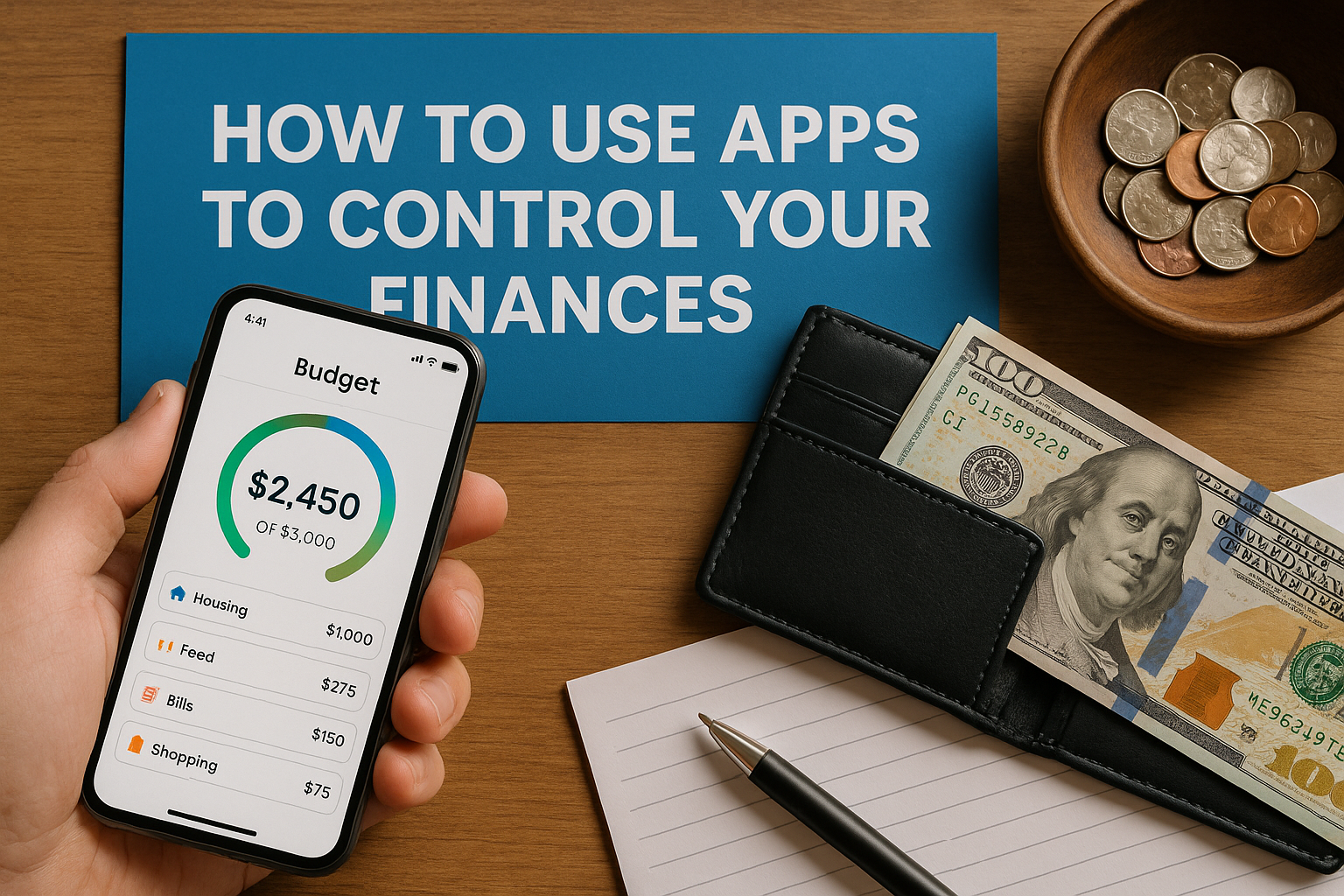Managing your money used to mean piles of receipts, paper checkbooks, and late-night calculator sessions. Today, financial apps have changed the game—giving you control over your income, spending, saving, and investing right from your phone.
If you’re looking for smarter ways to manage your money, this guide will walk you through the best types of financial apps, how to choose the right ones, and practical tips to build good money habits using technology.
Why Use Financial Apps?
Financial apps offer real-time insights and automation that help you stay on top of your money—without needing to be a finance expert.
Key benefits:
- Track every dollar
- Build and stick to a budget
- Set and reach savings goals
- Monitor your credit score
- Pay off debt faster
- Invest with little to no experience
Best of all? Many of the top financial apps in the U.S. are free or low-cost.
1. Budgeting Apps
Budgeting is the foundation of financial health, and apps make it easier than ever.
🟢 You Need a Budget (YNAB)
- Focuses on giving every dollar a job
- Syncs with bank accounts
- Encourages proactive planning
- Free trial, then subscription-based
🟢 Mint (by Intuit)
- Connects all your financial accounts
- Categorizes spending automatically
- Shows credit score and bill tracking
- Free to use (ad-supported)
🟢 EveryDollar (by Ramsey Solutions)
- Based on zero-based budgeting
- Simple, user-friendly interface
- Premium version connects to bank accounts
Best for:
Anyone who wants to take control of their monthly cash flow and build sustainable habits.
2. Savings Apps
These apps make saving painless by automating transfers and rounding up your spare change.
🟢 Digit
- Analyzes your spending and saves small amounts daily
- Customizable goals (vacation, emergency fund, etc.)
- Monthly subscription fee after free trial
🟢 Qapital
- Save money with “rules” (e.g., round up purchases or save $5 when you don’t eat out)
- Fun and motivational approach
- Integrates with financial goals
🟢 Chime
- High-yield savings account
- Automatic roundups and “Save When You Get Paid” feature
- FDIC-insured
Best for:
People who struggle with saving manually and need automated discipline.
3. Expense Trackers
These apps help you understand where your money goes—every swipe, every tap.
🟢 PocketGuard
- Links to bank accounts and credit cards
- Shows how much is “safe to spend” after bills and savings
- Alerts you to overspending
🟢 Spendee
- Manual or linked tracking
- Clean design and shared wallets for family budgeting
- Ideal for visual thinkers
Best for:
Anyone who wants to cut unnecessary expenses and stay within budget.
4. Debt Repayment Apps
These tools help you create a plan to get out of debt—faster and smarter.
🟢 Undebt.it
- Customizable debt payoff plans (snowball, avalanche)
- Visual progress trackers
- Free and paid versions
🟢 Tally
- Manages credit card payments automatically (for approved users)
- Helps reduce interest charges
- Best for those with multiple cards
Best for:
People with student loans, credit cards, or personal debt looking for structure and clarity.
5. Investment Apps
Start investing—even with $1—and grow your wealth without needing to be a stock market pro.
🟢 Acorns
- Rounds up purchases and invests the spare change
- Easy entry into investing
- Offers retirement accounts and custodial accounts
🟢 Robinhood
- Commission-free trading of stocks, ETFs, and crypto
- Beginner-friendly interface
- Great for learning by doing
🟢 Betterment (Robo-advisor)
- Automatically manages a diversified portfolio
- Tailored to your risk tolerance and goals
- Offers retirement planning
Best for:
Beginner investors who want hands-off growth over time.
6. Credit Score and Monitoring Apps
Know where your credit stands and protect it with the right tools.
🟢 Credit Karma
- Free credit score and report access
- Personalized recommendations for credit cards/loans
- Alerts for major changes in your report
🟢 Experian App
- Official access to FICO® scores
- Credit lock and identity protection tools
- Useful for monitoring progress if rebuilding credit
Best for:
Anyone building, maintaining, or repairing their credit score.
Tips for Getting the Most Out of Finance Apps
✅ Limit app overload
Stick to 2–3 apps that cover your main goals. Too many apps can lead to distraction.
✅ Set up notifications
Enable helpful alerts for spending limits, savings milestones, or unusual activity.
✅ Review weekly
Make a habit of checking your finances once a week—set it as a calendar event.
✅ Stay secure
Use strong passwords, 2-factor authentication, and avoid using financial apps on public Wi-Fi.
✅ Connect your goals
Use apps not just to monitor money, but to help you reach real goals: buying a home, becoming debt-free, or taking a dream vacation.
Final Thoughts: Let Tech Work for Your Wallet
You don’t need to be a financial expert to master your money—you just need the right tools and a little consistency.
Whether your goal is saving, budgeting, or investing, there’s an app to help you do it smarter. Start with one that aligns with your current goal, build the habit, and expand from there.
Remember: controlling your money starts with awareness—and apps are the simplest way to gain it.
